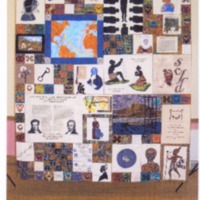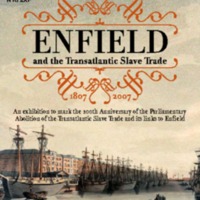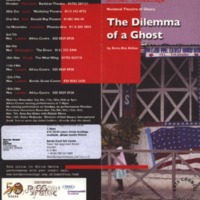
In Stitches
The In Stitches project was led by the African Families Foundation (TAFF) and brought together British, African and African-Caribbean women's quilting groups meeting in London, Liverpool, Bristol, Manchester and Birmingham. The In Stitches Quilt, designed by Janice Gunner, included 60 squares of embroidered images, texts and symbols, depicting historic figures, scenes and artefacts associated with the transatlantic slave trade and its abolition. The Quilt used several of the Adinkra symbols from Africa, originally printed on fabrics worn at funerals by the Akan peoples of Ghana. The accompanying work pack was designed to support learning about slavery based on the four themes of the Quilt: Capture, the Middle Passage, Life in the 'New World', and Proscription of Slavery. The Quilt was unveiled at City Hall in London, and then toured to the British Empire and Commonwealth Museum (Bristol), Central Library (Liverpool), Soho House (Birmingham), the International Quilt Festival (Birmingham) and Central Library (Manchester).

Enfield and the Transatlantic Slave Trade
An exhibition to mark the bicentenary was developed by Enfield Museum Service in partnership with the British Museum and Enfield Racial Equality Council. The exhibition looked at West African culture, the development of the local African community, the links between the transatlantic slave trade and Enfield, wealthy landowners and Quaker abolitionists who lived in the area. Free family days held during school vacations offered traditional Ghanaian story-telling, dancing and drumming, crafts and object handling. Living History Days gave visitors the opportunity to meet actors portraying William Wilberforce and Olaudah Equiano. School workshops included a drama session and performance about a runaway slave developed from material from Lambeth Archive. The museum service also produced a book, edited by Valerie Munday, which explored further the links between Enfield and the slave trade. The book was sent to all schools in the borough, and formed the basis of a teaching resource aimed at Key Stages 2 and 3. Loan boxes and handling collections provided by the museum service include Ghanaian artefacts and items relating to the slave trade. In 2011, Enfield Racial Equality Council unveiled a plaque to commemorate abolition at the Enfield Civic Centre.

The Dilemma of a Ghost
Written by Ghanaian playwright Ama Ata Aidoo, The Dilemma of a Ghost deals with colliding cultures in 21st century Africa. An African-American woman accompanies her Ghanaian husband as he returns home, but the couple are haunted by ghosts of the inheritance of the slave trade. A collaboration between London theatre company Border Crossings and the National Theatre of Ghana, the production used music and dance to celebrate 50 years of Ghana’s independence and 200 years since the abolition of the transatlantic slave trade. The play was performed in Birmingham, Hull, Leeds, Leicester, London, Plymouth and Slough. The production was was accompanied by a new book from Border Crossings, working in collaboration with Anti-Slavery International. ‘Theatre and Slavery: Ghosts at the Crossroads’ explored the ways in which world theatre responds to key issues in modern society and politics, including the issue of contemporary slavery.